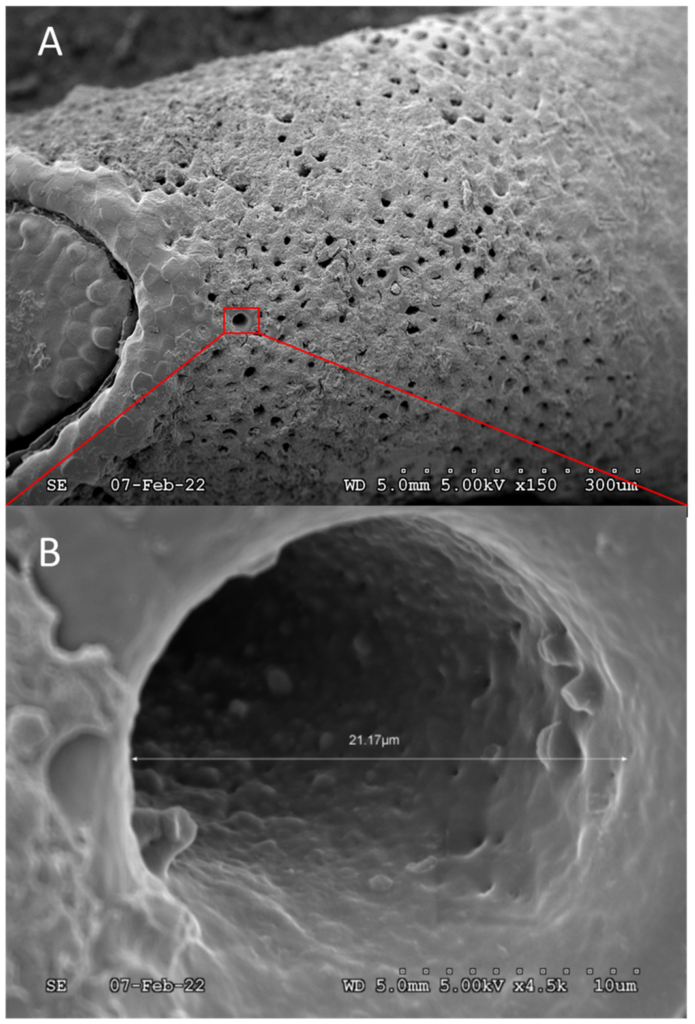Sometimes success means coming back to where you started. Dr. Jonathan Powell, a 2012 graduate from the Department of Chemistry and Biochemistry, has achieved a lot in his post-doctoral career. Now he’s happy to return to Fresno State, where he started a new job this semester as an instructional support technician for the Department of Earth and Environmental Sciences.
“I feel great about coming back to the same university where I got my undergraduate degree,” Powell said. “For me, working at Fresno State is coming home. It’s wonderful that I get to give back and support the education of new students in the same place that gave me my start.”
As an instructional support technician, Powell helps instructors create in-class demonstrations to illustrate scientific principles and use scientific equipment and instruments to their fullest potential.
“Jonathan has extensive experience in laboratory and field-based work, managing equipment and ensuring safe and organized research environments,” said Dr. Mara Brady, chair of the Department of Earth and Environmental Sciences. “His technical skills and enthusiasm for hands-on science education are a great asset to our department.”
In his time away from Fresno State, Powell gained experience and expertise in hands-on laboratory work that he is bringing back to his alma mater.
“It’s truly exciting to welcome Jonathan back as a member of our staff,” said Dr. Joy Goto, senior associate dean of the College of Science and Mathematics at Fresno State. “As an outstanding chemistry major during his undergraduate years, I’m confident he’ll be an inspiring mentor and role model for many of our students.”
Hands-on research to solve practical problems
Powell’s science career has taken him to the Oak Ridge National Lab, the U.S. Department of Agriculture and back to Fresno State, and at every step he has been motivated by a fascination with doing hands-on research to solve practical problems.
“The initial part that drew me to chemistry was being able to physically do something with my hands,” Powell said. “To not be sitting at a desk working on a computer but mixing chemicals and seeing physical changes is very satisfying. Research is a lot of fun, especially if you can see it’s going to lead to a deliverable consumer product. And chemistry is in everything — the synthetic fibers in your clothes, the rubber in your tires, the gasoline that powers your car. Fundamental research leads to changes in our everyday lives.”
“Chemistry is in everything. Fundamental research leads to changes in our everyday lives.”
—Jonathan Powell
After graduating from Fresno State, Powell completed his Ph.D. at the University of Tennessee at Knoxville. Powell’s interest in practical problems led him to do graduate research on developing new types of batteries with greater capacity and faster charging rates.
“I chose the research project on lithium-ion batteries because I thought, well, that’s something that people use every day,” Powell said. “There are all the renewable energy sources — wind, solar and hydro — what’s lacking is great energy storage devices. If there can be a major improvement in energy storage, consumers can see big changes in how long batteries last and how fast they can be charged.”

Return to the Valley and agricultural research
After receiving his doctoral degree, Powell knew he wanted to return home to the Central Valley, so he took a job with the USDA Agricultural Research Service lab in Parlier, where he researched the effectiveness of fumigants on killing insect eggs.
Using scanning electron microscopy, Powell inspected insect pest egg surfaces for pores that allow gases to enter the egg casing. The greater the surface area of the pores, the more vulnerable the egg was to fumigation gases. Powell also worked on improving methods for fumigant detection to more cheaply and accurately detect fumigant residues, improving food and worker safety.
Powell said USDA scientific research plays an essential role in supporting Central Valley agriculture and safeguarding the world’s food supply.
“California produces an average of $40 or $50 billion in agricultural products every year, and 25% of the country’s food supply comes from the Central Valley,” Powell said. “It’s extremely important that this sector doesn’t have any disruptions. Agricultural research isn’t just for pest control, it’s also breeding programs and creating new varieties that use less water or are more resilient, expanding the food supply for the world.”
In his new role at Fresno State, Powell is proud to be a part of science education. “Scientific education and scientific literacy are really important,” Powell said. “Teaching the fundamentals of science is important to understanding the world and makes you more resilient to false information. If students can do it with their own hands, they can see that science isn’t a faraway idea, it’s something we do every day and can see all the time.”


